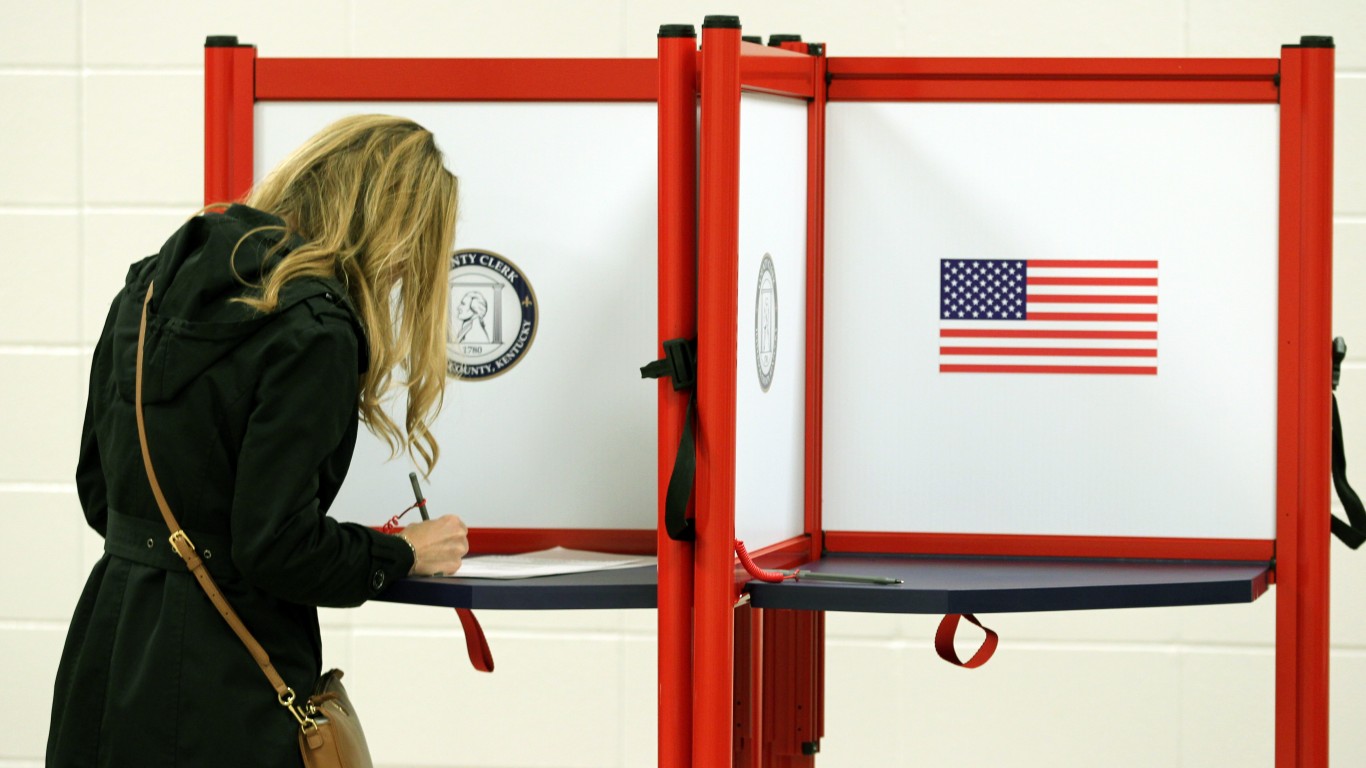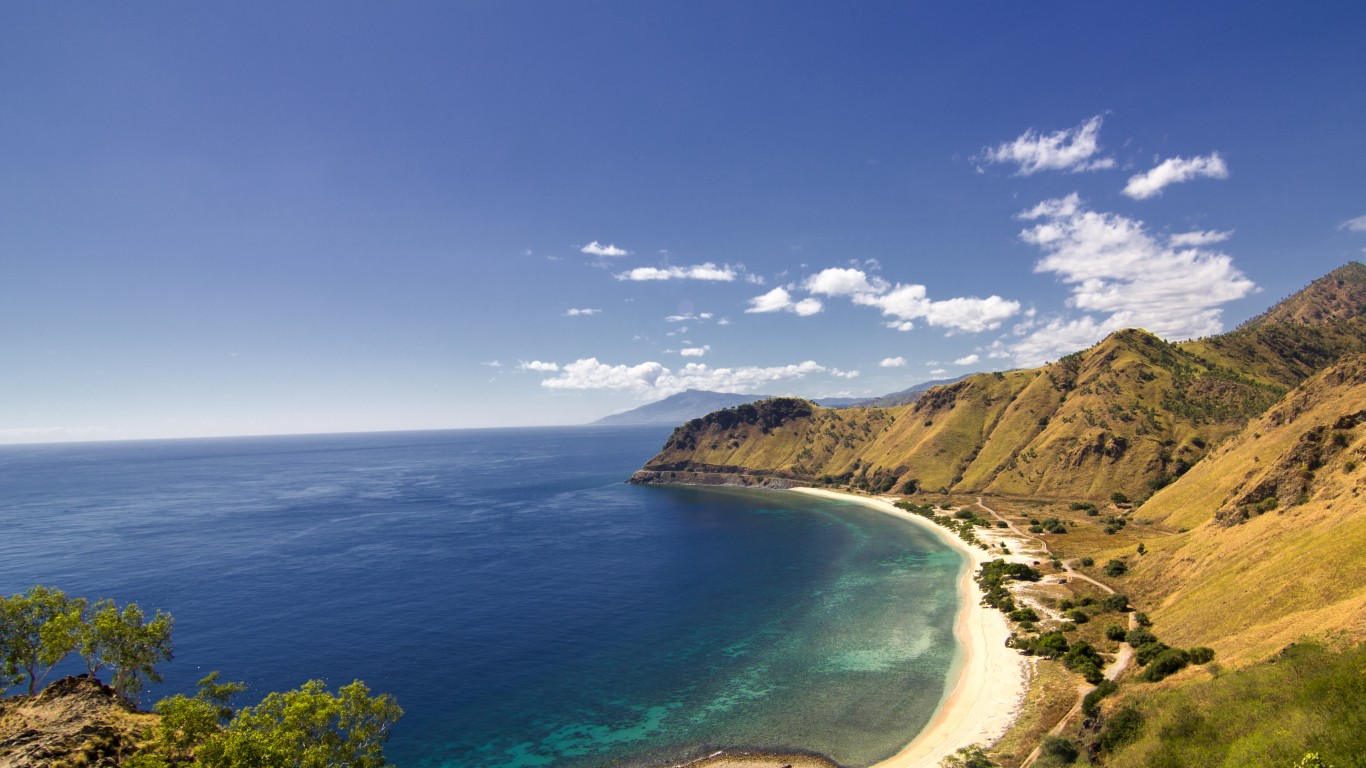
On May 20, East Timor will celebrate its 20th year as the first new country of the 21st century. This Southeast Asian island country is one of several nations that have emerged in recent decades, either through peaceful referendums like the Velvet Revolution that broke up Czechoslovakia into the Czech Republic (or Czechia) and Slovakia or the years of violence that eventually led to the separation of South Sudan from Sudan. (Here are some countries that no longer exist and why.)
The birth of nations can have radically different outcomes. While the Czech Republic maintained and grew its economy with a high living standard from its inception in the early ‘90s, South Sudan tumbled into a bloody civil war less than three years after its independence in 2011. (These are the 25 smallest countries and territories in the world.)
To compile a list of the nine newest countries in the world, 24/7 Wall St. reviewed several articles on the subject in major newspapers, and confirmed the information with the list of countries published by the U.S. Department of State on the Office of the Historian’s “All Countries” web pages.
The formation of new countries has slowed in modern times. Only five countries have emerged since 2000 – three of which came from the dissolution of Yugoslavia. But as recently as 2014, Scotland held an independence referendum after the United Kingdom voted to leave the European Union. The independence bid failed, but nearly 45% of voters supported independence, and some observers feel that Brexit (which 62% of Scots opposed) may lead to a different result if another referendum is called.
A similar movement for independence has been underway in the Spanish region of Catalonia, which has its own culture and language as well as a strong sense of unique identity. In addition, the French-speaking Canadian province of Quebec held referendums on independence in 1980 and 1995, and though both were defeated, there is still a strong separatist element.
Click here to see the newest countries in the world
In Africa, which produced two of the newest countries on this list, momentum has been building for full recognition of yet another one, Western Sahara. Officially known as the Sahrawi Arab Democratic Republic, the de facto sovereign state considers Morocco an occupier. The former Spanish colony has garnered recognition from dozens of United Nations member states.
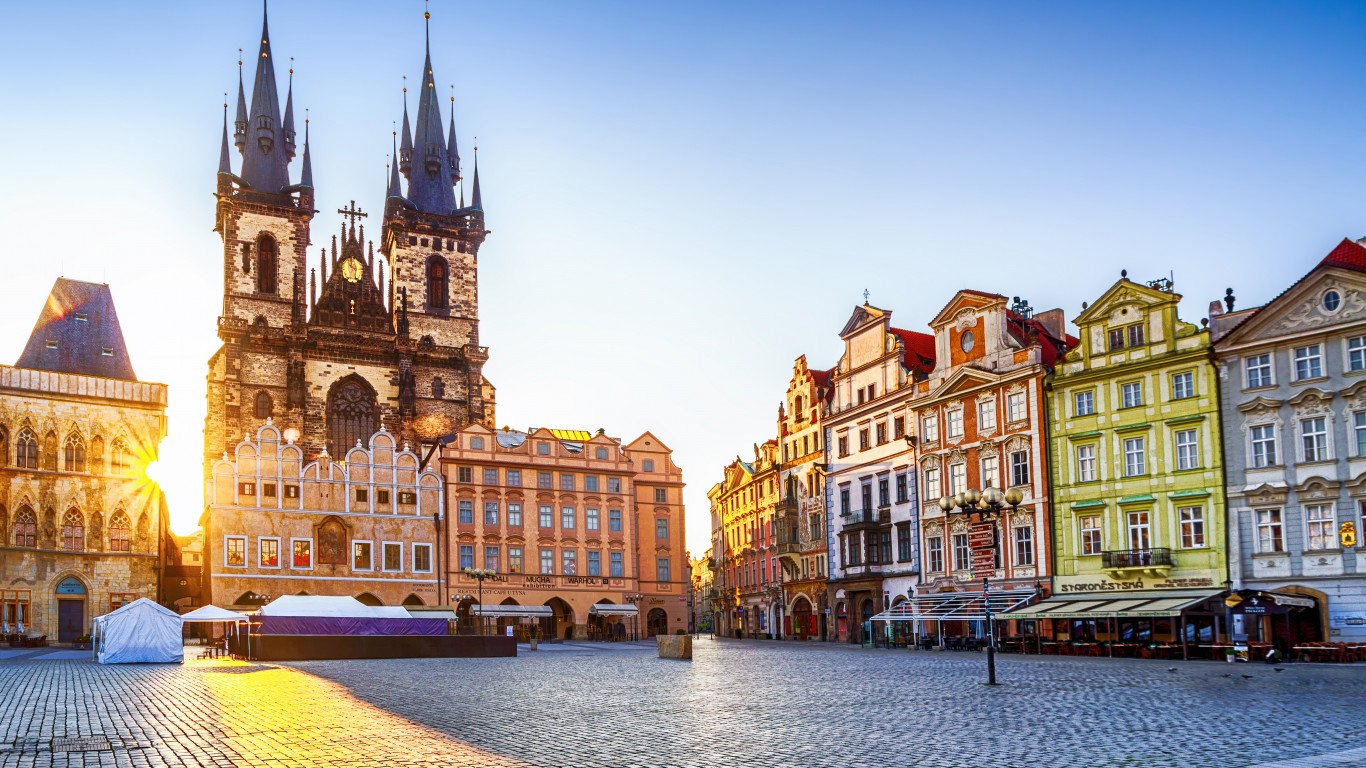
9. Czech Republic
> Date of founding: January 1993 — tied
The Czech Republic was formed in the wake of the Velvet Revolution of 1989 that brought liberal democracy to Czechoslovakia following 41 years as a satellite state of the Soviet Union. On Jan. 1, 1993, the former Eastern Bloc country peacefully split into the independent countries of the Czech Republic and Slovakia.
[in-text-ad]
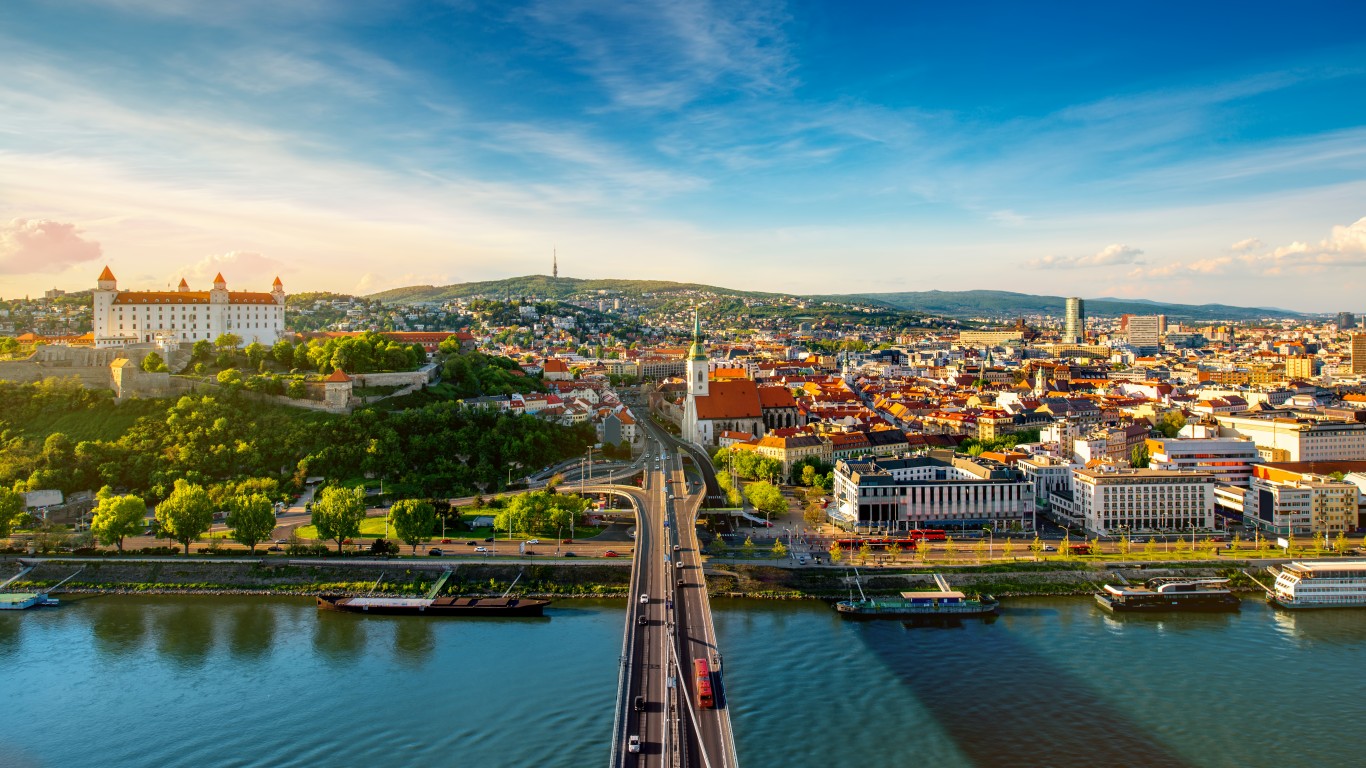
8. Slovak Republic
> Date of founding: January 1993 — tied
Communist rule of Czechoslovakia ended in 1989 with the Velvet Revolution, but the federal republic consisting of two constituent states that had been formed in 1969 wouldn’t last much longer thanks to many Slovaks’ demands for greater sovereignty. Premiers Vaclav Klaus of the Czech Republic and Vladimir MeÄiar of Slovakia agreed on July 23, 1992, to dissolve the 74-year union of the two republics at the start of the following year.
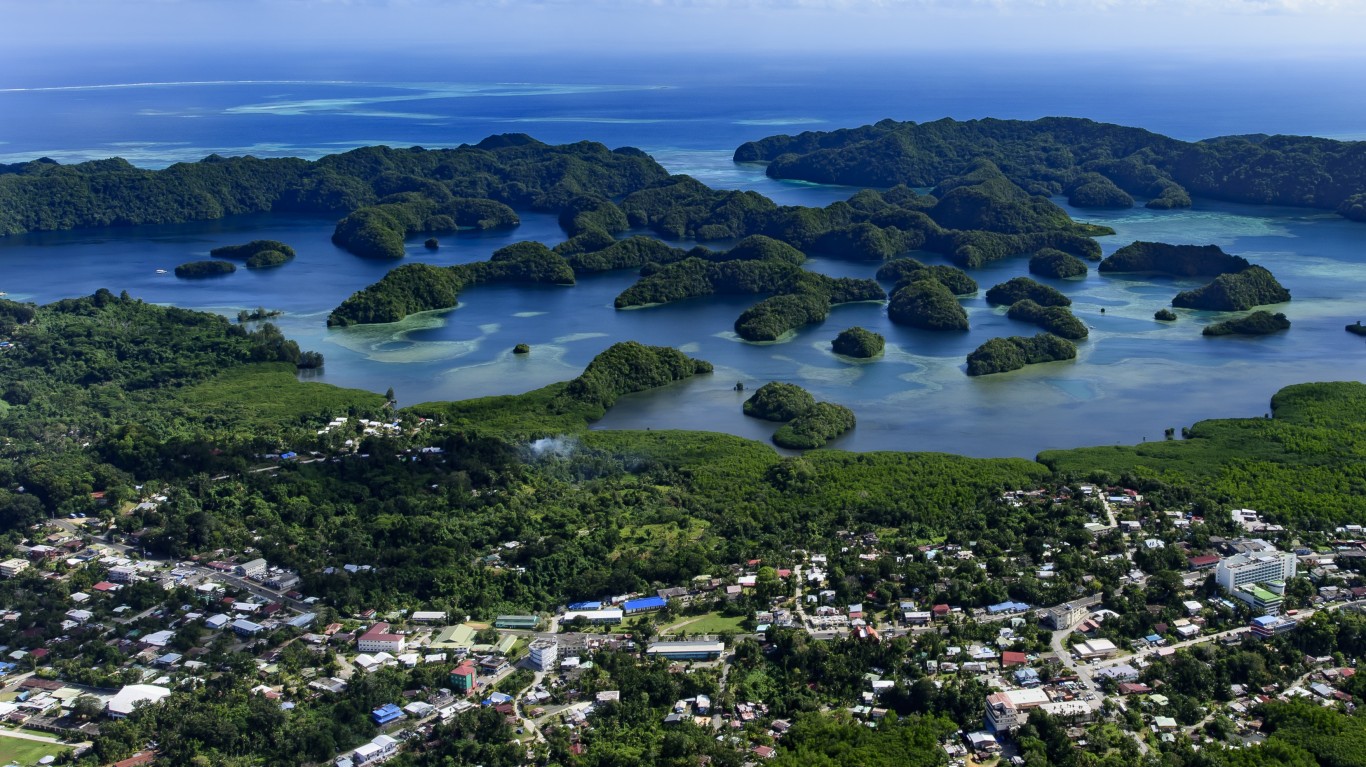
7. Eritrea
> Date of founding: April 1993
6. Palau
> Date of founding: October 1994
This coastal country bordered by Ethiopia and Sudan is the product of a 35-year-old resistance movement against imperial Ethiopia, whose emperor, Haile Selassie, annexed the Eritrean territory in 1962. Eritrea gained United Nations-supervised independence after its far-left rebels, helped by Ethiopian rebels, took control of the Ethiopian capital Addis Ababa.
Joining the Marshall Islands, Palau opposed efforts to create the Western Pacific Ocean’s Federated States of Micronesia in 1979, opting instead for independent status with the support of Japan and the Philippines. Twelve years after approving a new constitution, Palau became an independent state.

5. East Timor
> Date of founding: May 2002
Following efforts to declare independence from Portugal, this Southeast Asian island country was invaded by Indonesia in 1975 and quickly declared a province. After years of violence between separatists and the Indonesian military, the United Nations brokered a deal in 1999 to withdraw Indonesian troops and to begin the process of creating what is officially known as the Democratic Republic of Timor-Leste.
[in-text-ad-2]
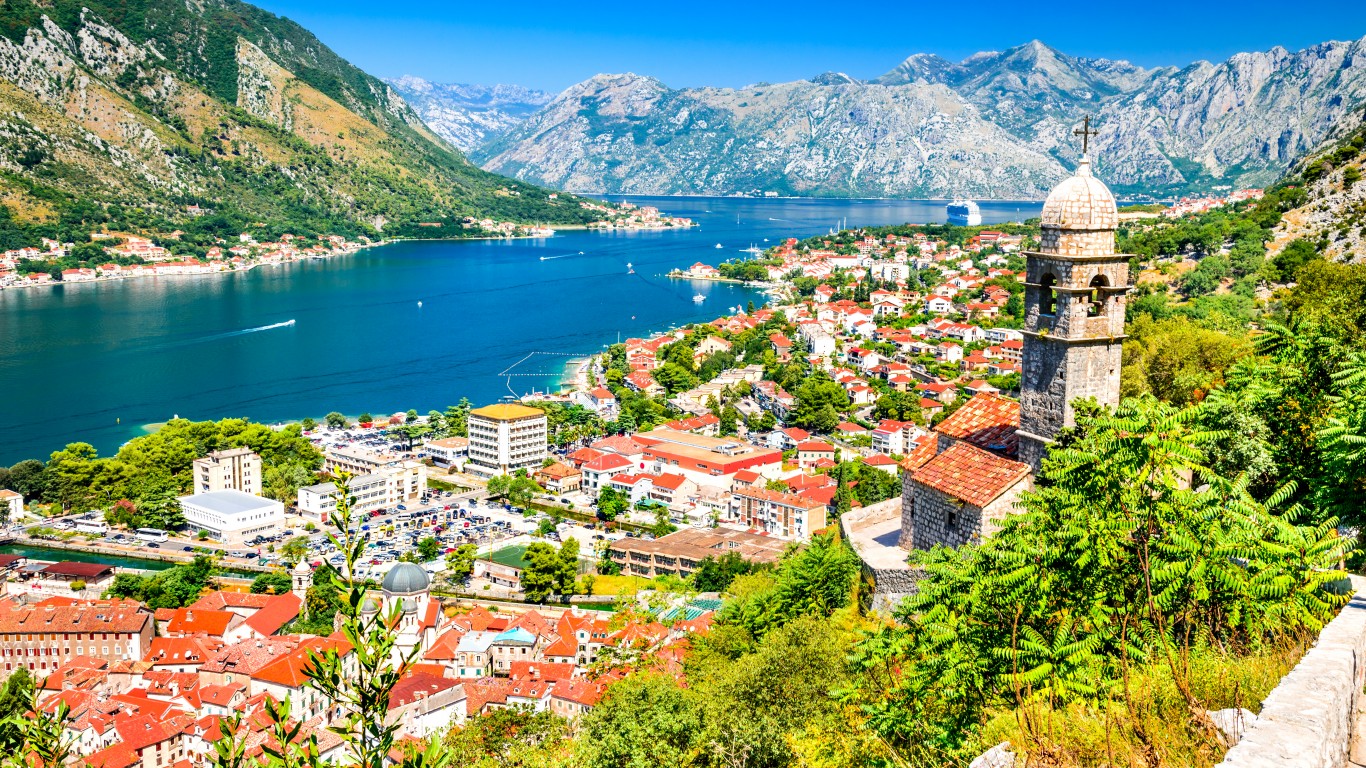
4. Montenegro
> Date of founding: June 2006
Like Czechoslovakia, the Balkan country of Yugoslavia broke up in the years after the dissolution of the Soviet Union and ensuing efforts to maintain a two-state federation. But Montenegro pursued its own economic and pro-independence policies, and despite efforts in 2002 to form a decentralized union re-named Serbia and Montenegro, a 2006 referendum on Montenegrin independence narrowly passed to break up the union.
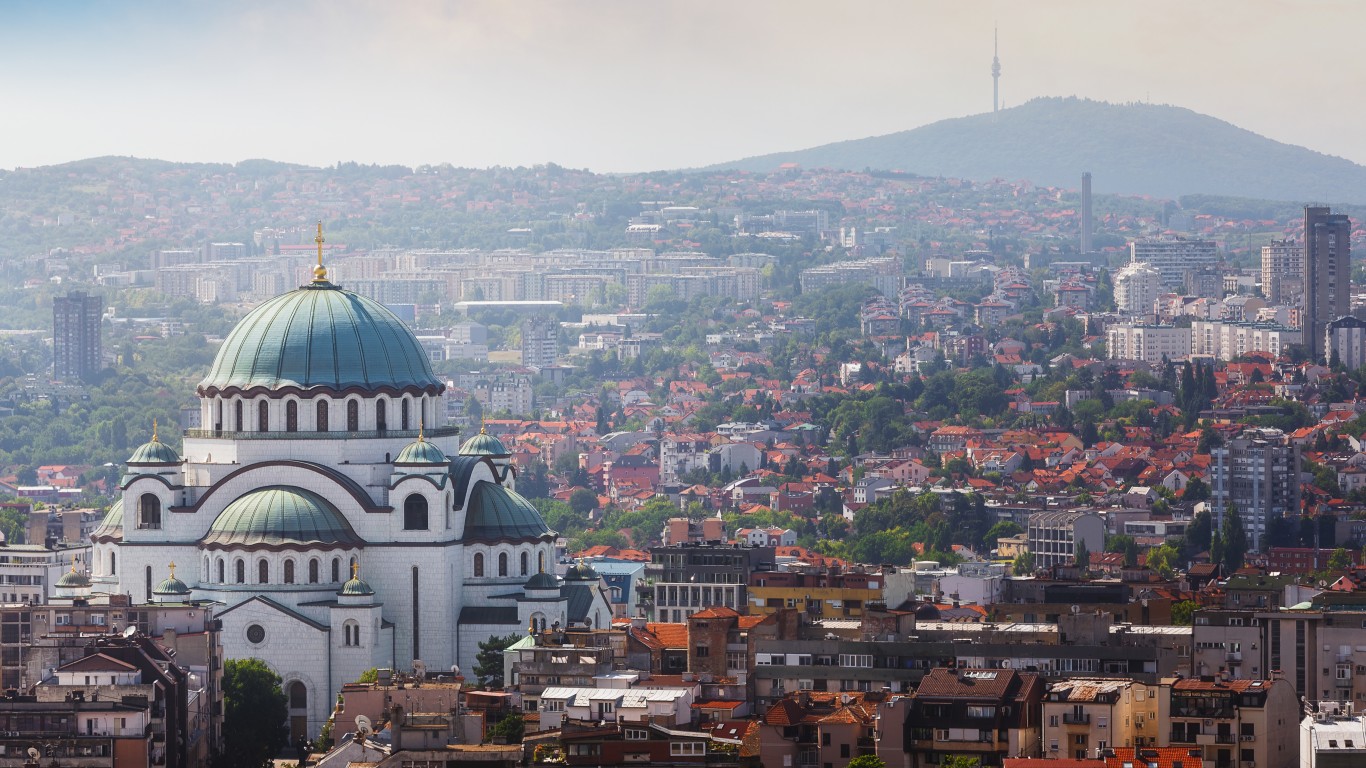
3. Serbia
> Date of founding: June 2006
Slobodan Milošević, the late war criminal and Serbian leader, pursued efforts to seize power from non-Serbian autonomous provinces in Yugoslavia, leading to ethic and regional tensions that led to the breakaway of Slovenia, Bosnia and Herzegovina, Slovenia, and Macedonia. Serbia and Montenegro remained united as a federal republic until Montenegro successfully pursued independence through a referendum in 2006.
[in-text-ad]
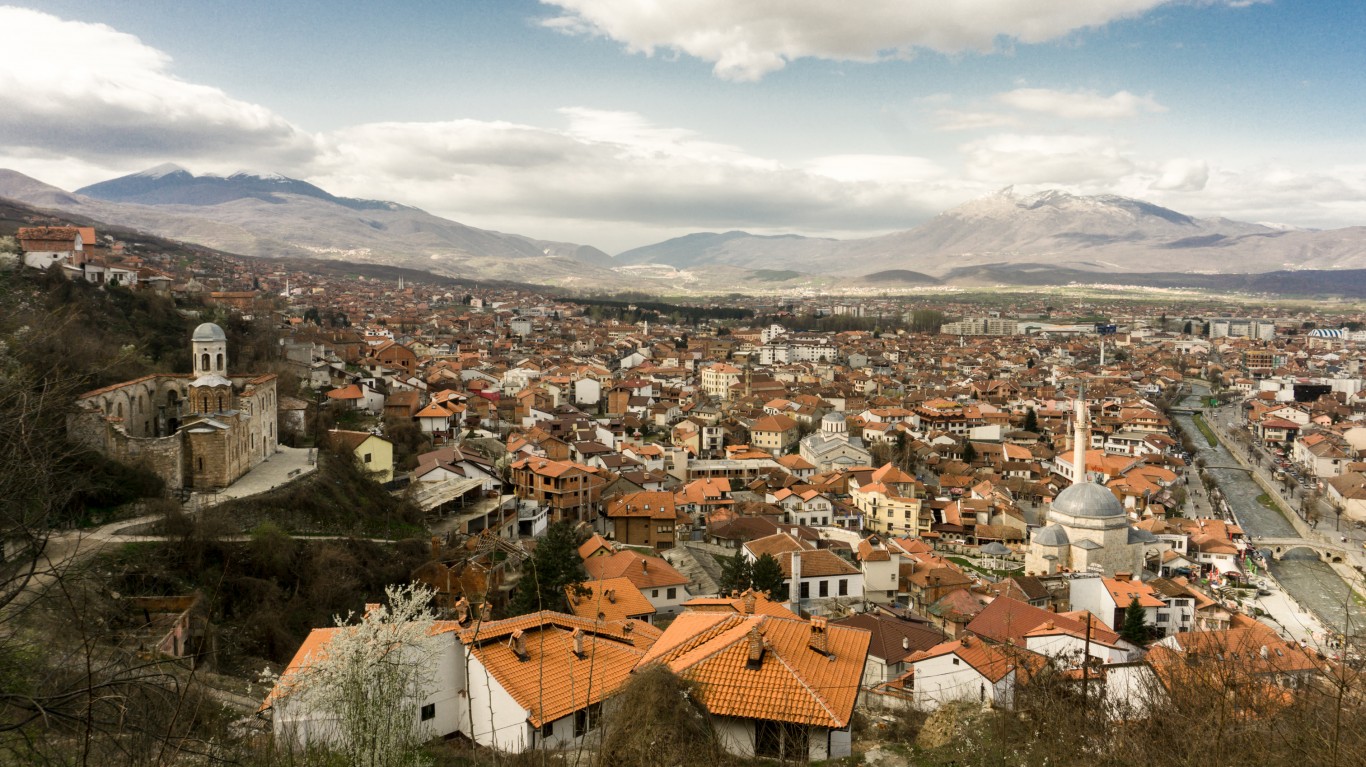
2. Kosovo
> Date of founding: February 2008
Serbian president Slobodan Milošević sought to reduce Kosovo’s special autonomous status within Serbia while also oppressing the region’s ethic Albania population, leading to a non-violent separatist movement and the Kosovo War (February 1998 to June 1999) with forces of the Federal Republic of Yugoslavia. Kosovo declared independence from Serbia in 2008, but many UN member states do not officially recognize its country status.
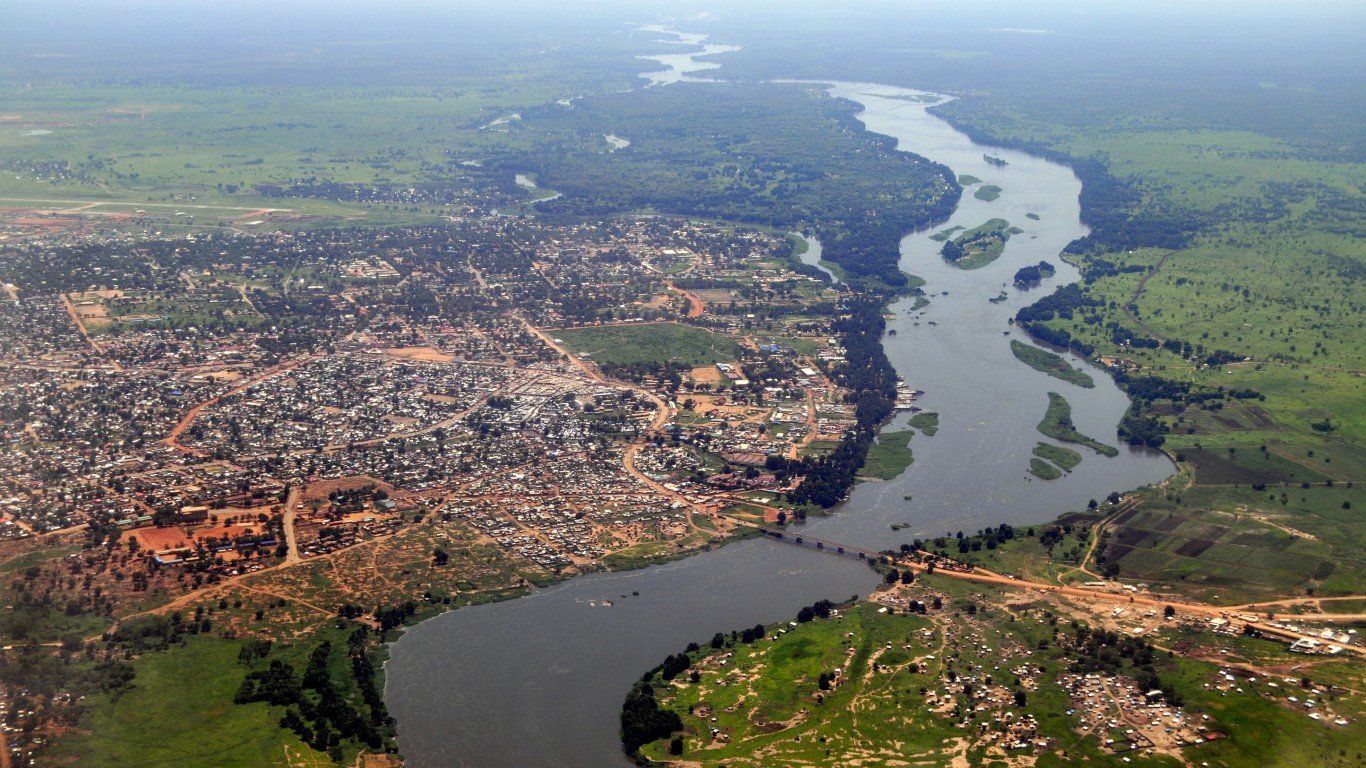
1. South Sudan
> Date of founding: July 2011
Though many unresolved issues remain between Sudan and South Sudan, including borders, the sharing of oil revenue, and citizenship rights, then-Sudanese President Omar Bashir peacefully acknowledged the results of South Sudan’s independence referendum in 2011. But Africa’s newest country struggled with civil war until February 2020, a conflict that killed about 400,000 people.
It’s Your Money, Your Future—Own It (sponsor)
Retirement can be daunting, but it doesn’t need to be.
Imagine having an expert in your corner to help you with your financial goals. Someone to help you determine if you’re ahead, behind, or right on track. With SmartAsset, that’s not just a dream—it’s reality. This free tool connects you with pre-screened financial advisors who work in your best interests. It’s quick, it’s easy, so take the leap today and start planning smarter!
Don’t waste another minute; get started right here and help your retirement dreams become a retirement reality.
Thank you for reading! Have some feedback for us?
Contact the 24/7 Wall St. editorial team.
 24/7 Wall St.
24/7 Wall St.
